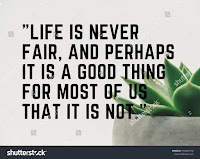It's autumn. The chestnut picking is over, and the cold weather stops the grass from growing so the lower edges of the mountain stand out. Thus begins an article in the Catholic Peace Weekly by a religious sister on what we can learn from a tree in her weekly column.
We know that leaves usually fall in autumn. As the days get colder, the leaves can't stand the cold and send all the energy needed for their life back to the roots to make it through the winter. To support its large body, the tree descends deeper into the ground that will be frozen solid and grabs the soil with all its strength. In the winter, any tree that looks like dry firewood to our eyes will have this happening deep in the ground, the roots hugging the earth. It makes her think of humility—a tree lays down its abundant leaves that have lavishly dressed her from spring. But doing so the tree grows even more. The fallen leaves rot and become soil and nourishment on which to tread. If you look at this cycle, the land, leaves, and tree eventually form one body.
Learning this wisdom from the tree, and sharing these stories, it's difficult to 'put them aside'. Difficult as going from being young, having a job, money, and returning to the ordinary and being old. All our energy was expended. The images of us doing Botox to get rid of wrinkles on our faces, looking for various ways to rejuvenate, and struggling to get a better job come to us in images that contrast with the natural scenery of the forest.
The forest we create shows its splendor from the outside, but the roots are shallow and we don't know when it will collapse. We must remember that when the leaves drop all their nutrients go down to the roots, the trees stand firmer and that letting go is never death. When a tree sends all its nutrients to its roots, it looks like a dead tree. This is because the moisture in the body of the tree is expelled to prepare for the severe cold of winter. Now is the time to learn from the tree.
If we try to keep everything within the boundaries we have made it will soon come to an end; if we put our heads together and find a way to live together across borders the light of hope will lead us.
The nun has lived with the soil for ten years, so her face is full of blemishes, and her skin is dark even when she doesn't work in the sun. When she goes home on vacation, her mother sighs. Of the five daughters, the youngest has the most wrinkles and blemishes on her face.
The nuns look at her face and say, "The sun has kissed her!" She likes to hear the expression. It makes her feel good to think of the traces of the sun on her face. She is happy when there are traces of grass on her hands and traces of dirt under her nails. Signs of the time she spends with nature remain in her heart. Those who care for nature enter into nature. This principle of giving that makes us live is what we call love so we live in love.
When we live in harmony with the earth it becomes like a mother's lifeline. This principle of giving that makes us live, is what we call 'love'. So we live in love. Because in everything there are traces of the love that God has given. If she lives a little longer like this, she wonders whether she will come to know that giving is the way to live?






